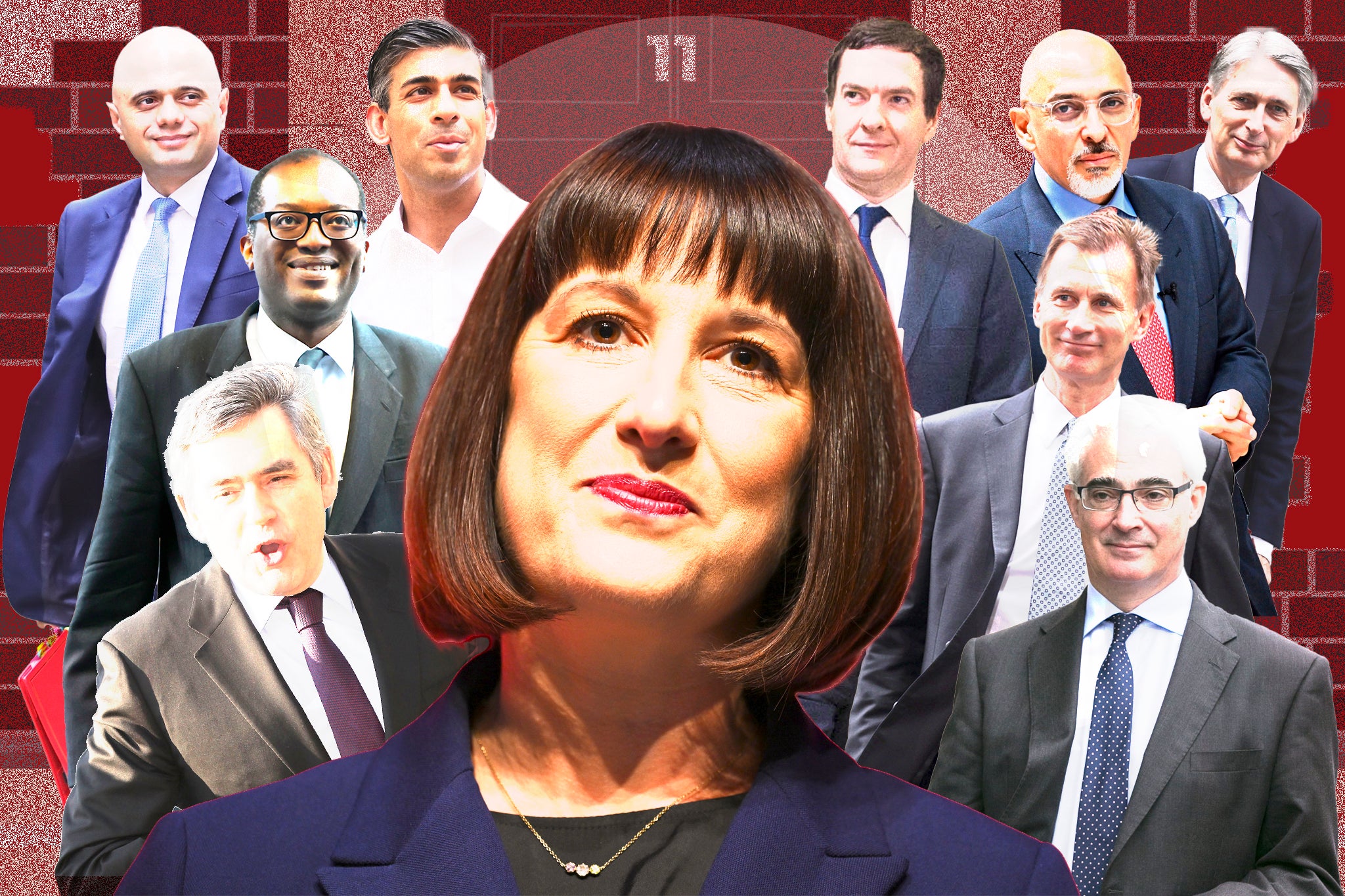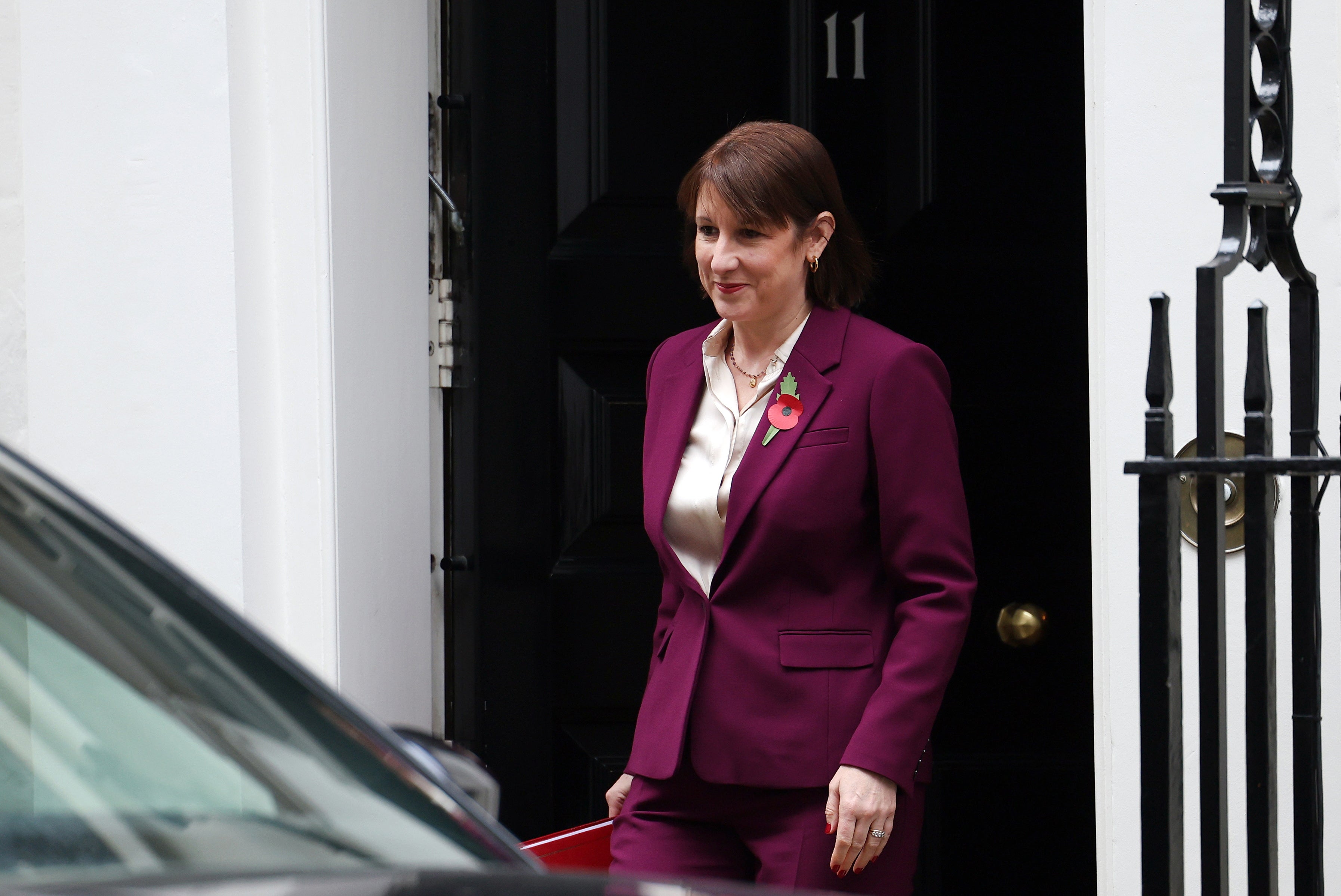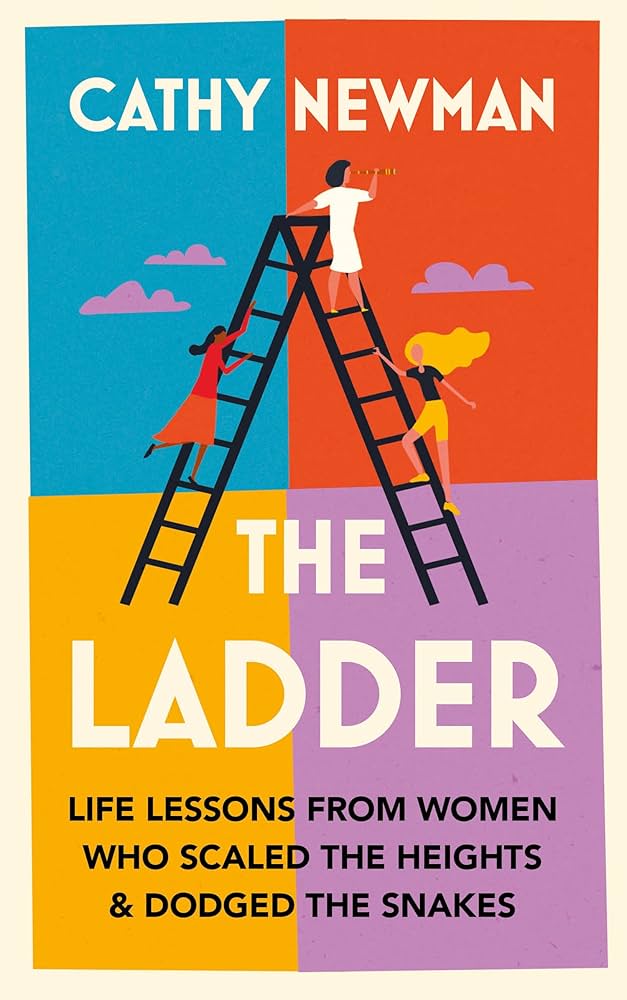Rachel Reeves is Britain’s first ever female chancellor – there’s ‘peril’ in that
Britain has had three female prime ministers but Rachel Reeves is the first woman to head up the Treasury. Cathy Newman looks at why that matters and hears from the chancellor about her pride at being the one to break the glass ceiling, but how breaking up the urinal in her private office was a whole different matter…


When Rachel Reeves became the first female chancellor since the post was created 800 years ago, there was no disguising her pride in her historic achievement.
In her very first speech to Treasury staff, she remarked on what a “huge privilege” it was. Beaming from ear to ear, she positioned herself as a standard bearer for “every young woman and girl” to demonstrate that “there should be no ceilings on your ambitions, your hopes or your dreams”.
While Hillary Clinton had booked a party venue with a glass ceiling, in anticipation of being able to smash through it with her doomed 2016 US presidential bid, Reeves has done it. (Breaking up the urinal in the chancellor’s private office was to prove slightly more challenging after Treasury officials told her it would cost thousands and require listed building consent.)
Last night the chancellor told me how “deeply proud” she was. “It will be the first time in this country’s history that a Budget will be delivered by a woman. For the girls and young women watching, I hope they will see it as a moment of pride. A sign that there is no ceiling on their ambitions and that another glass ceiling has been smashed,” she said.
For Reeves, this has been a personal mission, inspired by Labour pioneers like Barbara Castle, Ellen Wilkinson and Harriet Harman. And there’s no doubt what a positive achievement it is – in an otherwise bleak tax-raising Budget.
Thangam Debbonaire, newly elected chair of the Labour Women’s Network, says: “Yes it matters that there’s never been a female chancellor and it’s noteworthy … It matters that young women know everywhere that it’s not easy but it’s possible. It’s symbolism, but it matters.”
Even Reeves’s political nemesis, the shadow chancellor Jeremy Hunt, acknowledges the significance, telling me: “Keir Starmer was generous about Rishi being the first prime minister of Indian origin and we should be equally generous when a Labour politician smashes a glass ceiling, not least in the male-dominated world of finance and economics.”
It’s tempting to think there’s barely a glass ceiling intact in the UK now. Though we’ve yet to see a woman at the helm of the Bank of England, we’ve had no fewer than three female prime ministers in the UK now. Aside from the Treasury, we’ve had women leading the great offices of state – the Home Office and Foreign Office – not to mention female union bosses and business leaders.
It matters, as Debbonaire says, because young women can see that it’s possible. And all too often in the past, it hasn’t felt that way.

As I discovered while researching my book The Ladder, about extraordinary women who have risen to the top despite the many obstacles in their way, women sometimes have a sense they don’t belong in the highest echelons. It’s striking how many women in the public eye admit to suffering “imposter syndrome”, believing they’ve achieved their lofty position through some kind of fluke, and that sooner or later they’ll get found out.
The deputy prime minister Angela Rayner, whose hard-scrabble backstory as an unofficial carer for her mother is now well known, told me she struggled to fit in when she arrived in parliament in 2015.
“I’d never seen anything like it,” she told me, going on to recount a hilarious misunderstanding with a Conservative MP, arising out of their vastly different backgrounds.
“I remember I was at an event with a Tory MP and I was talking about horses churning up grass on the estate. And this Tory MP said, ‘Yes, we’ve got that problem too, but we’ve got llamas now.’ And I went, ‘What? I’m talking about travellers’ horses on a council estate…’ He was talking about his country estate. I thought: wow, this is a different world.”

As more women join Reeves and Rayner in leadership positions, and as the first female chancellor hands on to the second and the third, perhaps the next generation will be less likely to question their place at the top table.
But there is a danger in Reeves’s decision to write her own entry in the history books. Kamala Harris seems to be aware of this too, shying away from campaigning on being a “female first”, after the debacle of Clinton’s thwarted attempt to make American election history.
Baroness Harman, a vocal Reeves ally, tells me that although the new chancellor is a brilliant role model for young women, there’s “a bit of a peril” in being first. “You are putting on yourself the responsibility to succeed as the first. Being the first person to break through, the best thing is to let other people point that out, like Kamala Harris has done.”
Rachel is not just the first female chancellor; she’s the first feminist chancellor. The important thing is what you do to succeed – but also to succeed for other women
And although the symbolism is significant, the substance of what Reeves achieves in office will dictate whether her contribution to history is more than a mere footnote.
To be fair, the chancellor herself made mention of this in that first speech to Treasury staff, alluding to a “deeper responsibility” to deliver for women “whose work is too often undermined, who have borne the brunt of inequality and whose lives and interests are too often excluded from economic policy-making”.
Harman concurs, noting that “Rachel is not just the first female chancellor; she’s the first feminist chancellor. The important thing is what you do to succeed – but also to succeed for other women. She doesn’t just say, ‘I am the first woman chancellor’; she says, ‘This is where I am coming from’.”
With that in mind, the chancellor’s allies say she has a laser focus on policies that will make a genuine difference to women – from childcare to closing the gender pay gap, from flexible working to women’s participation in the workforce.
So, while Sir Keir Starmer has overturned 800 years of history to instal his ally in the Treasury, for campaigners like Harman and Debbonaire, the test of Labour’s commitment to equality will be whether life under this government gets better or worse for women as a whole.

It’s worth noting that more than a century after the first female MP took her seat in parliament (Nancy Astor), deep and persistent inequalities and injustices remain for women in Britain.
Rape conviction rates are still at almost historic lows. A woman is killed by a current or former partner every five days in England and Wales. And in the online world, abuse and deepfake porn shows that the misogyny encountered for centuries has shifted from the real to the virtual world.
Debbonaire argues that women in positions of power can and do make a tangible difference. “That’s why it matters to have a female chancellor: it was not until we had a female home secretary that somebody said rape convictions are dire. Jacqui Smith made it a priority and convictions went up.”

Reeves may struggle, though, to chalk up tangible policy “wins” during a time of huge economic headwinds. If the chancellor found it tricky to rip out that urinal, with officials at one point reportedly suggesting covering it up with pot plants, her room for manoeuvre in the Budget may prove similarly challenging.
If she does manage to pull it off, though, senior women in the Labour Party say there’s potentially an even more historic prize up for grabs in future: the premiership. To the eternal shame of a party which is supposed to have equality in its DNA, Labour has yet to have its first female leader. The Conservatives have had three and may be about to get another one.
Harman brushes aside such considerations: “Rachel is very much a person who focuses on the job in hand. She doesn’t calculate what her next step is.”
Debbonaire, though, while insisting she wants “the current Labour leader to stay being prime minister as long as possible”, stresses the need for Labour’s women to prepare for the future.
“I do think there is already an array of talented strong capable women, of whom Rachel is one. It will be a failing of us all if the array of women doesn’t come forward,” she tells me.
This week all eyes are trained on No 11. But if Reeves defies the doubters on Wednesday, her admirers believe we may yet see her installed next door.
Cathy Newman presents ‘Channel 4 News’. Her book ‘The Ladder: Life Lessons from Women Who Scaled the Heights & Dodged the Snakes’ is out now
Join our commenting forum
Join thought-provoking conversations, follow other Independent readers and see their replies
Comments


Bookmark popover
Removed from bookmarks